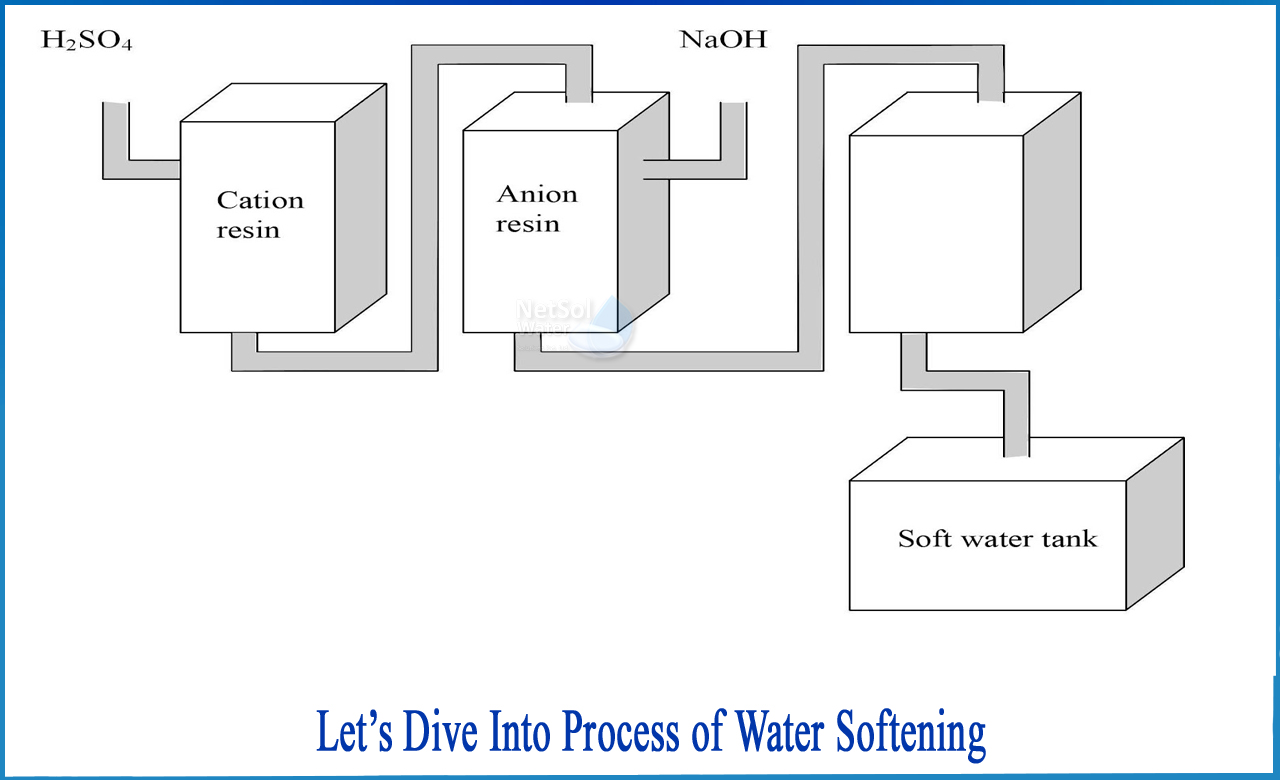OVERVIEW
Are there any stains or odours in your water?
You most likely have hard water, as do the majority of Indians. Before reaching your home, your water has picked up a variety of dissolved minerals and contaminants. It corrodes your appliances, stains your fixtures, and dries out your skin and hair. Netsol's water softener will remove those minerals, extending the life of your plumbing system and lowering the amount of money you spend on soap.
PROCESS OF WATER SOFTENERS
1-Incoming water enters the water softener vessel, which contains the resin bed. The water's velocity slows as it spreads across the bed's larger surface area and travels through the millions of tiny beads.
2-Minerals in the water are drawn to the resin surface areas during this process. The water then exits the resin bed, free of the mineral-laden minerals, with only a minor drop in hydraulic head pressure.
3-The hardness minerals in the water are captured by the resin bed. However, as the surface area of each bed in the resin is occupied by minerals, the water softener's effectiveness gradually decreases. A complete industrial water softening system must include regeneration equipment for these resin beds.
4-Typically, a duplicate resin bed can be activated to give the primary resin bed time to refresh. After the water has been diverted to the second bed, the regeneration of the first bed can begin.
5-The other option is to stop the outflow of water during the regeneration process. This may be possible if the demand for softened water is limited to one or two shifts.
The resin has a much higher affinity for calcium and magnesium ions, but when rinsed with water containing a very high concentration of sodium ions (i.e., very "salty" water), the sodium ions replace the calcium and magnesium ions on the resin. Finally, the resin bed is flushed with water to remove any excess salt before it is returned to service.
WATER IS TOO SOFTEN OR NOT TOO SOFTEN?
Because water softening is not a compulsory treatment step, each treatment plant must determine whether to do so. After carefully assessing the benefits and drawbacks of softening, this decision should be made:
Softening will address the issues produced by hard water, the most troublesome of which are excessive soap use and scale. Softening may also help with other water treatment processes, depending on the type of softening technique utilised. Iron and manganese are frequently removed, as are tastes and smells, total solids content, and radioactivity. Lime softening has a high pH, which can help with disinfection. Finally, corrosion in the distribution system is prevented when water is stabilised by re-carbonation at the end of the lime softening process.
Netsol Water is Greater Noida-based leading water & wastewater treatment plant manufacturer. We are industry's most demanding company based on client review and work quality. We are known as best commercial RO plant manufacturers, industrial RO plant manufacturer, sewage treatment plant manufacturer, and effluent treatment plant manufacturers. Apart from this 24x7 customer support is our USP. Call on +91-9650608473, or write us at enquiry@netsolwater.com for any support, inquiry or product-purchase related query.



